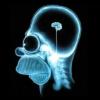
CL-994: capable of removing traumatic memories and persisting anxiety? (And resulting persistent attention problems?)
#31
Posted 03 March 2014 - 10:27 PM
#32
Posted 03 March 2014 - 11:40 PM
If they only tested the 30mg/kg dosage in mice for its effect on traumatic memory, 25 times less than the human equivalent dosage might be massively underdosed. Or is there a good reason to assume that ~5mg will be enough? Eitherway, I'm desperate enough to try it, so count me in.
Indeed, from the research I am familiarized with in regards to other agents of this class and based on respective in vitro and in vivo assays, such will very likely be highly insufficient to produce any notable effect. Obviously, this is just conjecture based on these correlative assays.
Though, if people wish to assess it at the suggested low dose, it might be easiest to simply procure the material directly from the supplier at 50mg for $63 than coordinate a whole affair with a group buy.
#33
Posted 04 March 2014 - 12:37 AM
Would another HDAC inhibitor such as Valproic acid work?
Also, tobacco smoke has some HDAC inhibitory effects.
I think valproic acid has some real potential. I'm sure everyone here knows about the "perfect pitch" studies done recently.
http://journal.front....00102/abstract
Edited by Sinter, 04 March 2014 - 12:43 AM.
#34
Posted 04 March 2014 - 05:02 AM
I doubt going the route of trying to achieve positive health effects by inhaling significant amounts of tobacco smoke is a sound way to go either.
#35
Posted 04 March 2014 - 05:03 PM
Ketamine and imipramine in the nucleus accumbens regulate histone deacetylation induced by maternal deprivation and are critical for associated behaviors.
Réus GZ1, Abelaira HM, dos Santos MA, Carlessi AS, Tomaz DB, Neotti MV, Liranço JL, Gubert C, Barth M, Kapczinski F,Quevedo J.
Author information
Abstract
Studies indicate that histone deacetylation is important for long term changes related to stress and antidepressant treatment. The present study aimed to evaluate the effects of the classic antidepressant imipramine, and of an antagonist of the N-methyl-d-asparte (NMDA) receptor, ketamine, on behavior and histone deacetylase (HDAC) activity in the brains of maternally deprived adult rats. To this aim, deprived and non-deprived (control) male Wistar rats were divided into the following groups: non-deprived+saline; non-deprived+imipramine (30 mg/kg); non-deprived+ketamine (15 mg/kg); deprived+saline; deprived+imipramine (30 mg/kg); and deprived+ketamine (15 mg/kg). The drugs were administrated once a day for 14 days during their adult phase. Their behavior were then assessed using the forced swimming and open field tests. In addition, the HDAC activity was evaluated in the prefrontal cortex, hippocampus, amygdala and nucleus accumbens using the kit ELISA-sandwich test. In deprived rats treated with saline, we observed an increase in the immobility time, but treatments with imipramine and ketamine were able to reverse this alteration, decreasing the immobility time. Also, there was a decrease on number of crossings with imipramine treatment in non-deprived rats, and an increase on number of crossings with ketamine treatment in deprived rats. The HDAC activity did not alter in the prefrontal cortex, hippocampus and amygdala by deprivation or via treatment with imipramine or ketamine. However, in the nucleus accumbens we observed an increase of HDAC activity in the deprived rats, and interestingly, imipramine and ketamine treatments were able to decrease HDAC activity in this brain area. These findings provide a novel insight into the epigenetic regulation of histone deacetylase in the nucleus accumbens caused by imipramine and ketamine, and indicate that molecular events are necessary to reverse specific stress-induced behavior.
#36
Posted 04 March 2014 - 07:52 PM
http://medicalxpress...s-disorder.html
#37
Posted 04 March 2014 - 10:19 PM
http://cancerres.aac...t/69/3/958.full
Androgen receptor mediated activity is decreased with HDACi use.
Androgens are important in both male and female sexual desire as well as other mood and behavioral effects.
This has convinced me that more specificity is desireable. The downstream decrease in HDAC caused by imipramine or ketamine may be sufficient for clincal needs.
I think instead of looking so much at mechanisms, we need to see what works in clinical practice. Both ketamine and imipramine are effective anti-depressants and could be quite useful in treating anxiety and traumatic experiences.
#38
Posted 05 March 2014 - 12:22 AM
Indeed, from the research I am familiarized with in regards to other agents of this class and based on respective in vitro and in vivo assays, such will very likely be highly insufficient to produce any notable effect. Obviously, this is just conjecture based on these correlative assays.
Though, if people wish to assess it at the suggested low dose, it might be easiest to simply procure the material directly from the supplier at 50mg for $63 than coordinate a whole affair with a group buy.
It sounds like Veritas knows what he talks about, so at this point CL-994 doesn't seem to be affordable in a quantity that might help, at least not for me.
What's about vorinostat? That is one of the HDAC-inhibitors already in use and has shown similar results to CL-994: http://www.ncbi.nlm....pubmed/23584669
The same source that was already mentioned provides it at a much cheaper price. As I can't read more than the abstract, I'm not sure about the dosage they used.
Edited by dijital, 05 March 2014 - 12:54 AM.
#39
Posted 05 March 2014 - 08:43 AM
How reliable is that cheapest source?
Scamadvisor says it's trustworthy, I have found no negative remarks about it on the net anywhere. And it's not Chinese but an American company located in Massachusetts. Here is more information on the lab: http://www.lclabs.com/FAQS.php4 / http://www.lclabs.com/Warranties.php4
Of course they do have this disclaimer: "Our products are for laboratory research only and are sold only to qualified research institutions, not to individuals or patients nor for veterinary use."
But that was to be expected. I'm confident I can order it anyway.
#40
Posted 05 March 2014 - 08:56 AM
Indeed, from the research I am familiarized with in regards to other agents of this class and based on respective in vitro and in vivo assays, such will very likely be highly insufficient to produce any notable effect. Obviously, this is just conjecture based on these correlative assays.
Can you give me literature which tested HDAC inhibitors at a dose of around 1 mg/kg in humans (or mice)? It was shown to reach the brain after all, I would think that it can have an effect. And take into account that we are not aiming at wiping the stress associated with a single memory. My target audience are people who have gone through severe stress and anxiety. Undoubtedly there are more than a few methyl groups to remove. With a lot of targets, the chance of noticeable improvement seems likely to me.
#41
Posted 05 March 2014 - 01:39 PM
Anyway, I'm certainly in at $63. The relation to ketamine's MOA is fairly compelling. I think taking a kappa antagonist simultaneously could be very synergistic.
#42
Posted 05 March 2014 - 04:24 PM
Indeed, from the research I am familiarized with in regards to other agents of this class and based on respective in vitro and in vivo assays, such will very likely be highly insufficient to produce any notable effect. Obviously, this is just conjecture based on these correlative assays.
Can you give me literature which tested HDAC inhibitors at a dose of around 1 mg/kg in humans (or mice)? It was shown to reach the brain after all, I would think that it can have an effect. And take into account that we are not aiming at wiping the stress associated with a single memory. My target audience are people who have gone through severe stress and anxiety. Undoubtedly there are more than a few methyl groups to remove. With a lot of targets, the chance of noticeable improvement seems likely to me.
I am referring to research wherein doses required to obtain certain HDACi effects are shown to be significantly higher to that which is required to obtaining other effects. I am simply uncertain for this agent with all the given research and animal dosing protocols assayed that such a dose has a solid probability that it will meet the threshold for this effect. It is simply an informed probability assessment as relates to required dose for desired effect. I certainly hope it will and would be interested to read any bio-assay feedback either way of course. I just believe this is a legitimate issue one should perhaps take into consideration. In whatever manner one wishes to assess this (or not) is at the individual's discretion.
Edited by VERITAS INCORRUPTUS, 05 March 2014 - 04:34 PM.
#43
Posted 09 March 2014 - 10:32 AM
What's about vorinostat? That is one of the HDAC-inhibitors already in use and has shown similar results to CL-994: http://www.ncbi.nlm....pubmed/23584669
The same source that was already mentioned provides it at a much cheaper price. As I can't read more than the abstract, I'm not sure about the dosage they used.
That is actually quite interesting, I see vorinostat has gone through phase 1 and phase 2 testing. I'll have an opportunity to browse through literature catalogues next Tuesday and will upload the relevant articles. But the cheaper price may be outweighed by higher dosages or more side-effects. Still I'm curious enough to wait with ordering Cl-994 for just a few days till I checked out vorinostat. I doubt that LCLabs would ship in weekends any way.
#44
Posted 12 March 2014 - 07:21 AM
For the 2 dozen or so articles that tested vorinostat the most frequently used dosages were 200-400 mg daily. The dosage used for fear extinction in rats was 50mg/kg. This converts to 7,14 mg/kg in humans or roughly 428 mg for an adult of 60kg. So the tested dosages were relevant concentrations.
Because every trial focused on another type of cancer, the results seemed to differ strongly. It matters a lot if you test something on a patient with advanced cancer of the gut or early cancer in the lungs. But most articles found little problems with 200 mg daily for a few weeks, mostly nausea and loss of appetite. Still, that would leave one-in-so-many that DID develop an issue like thrombocytopenia, so the sensitivity per person for vorinostat did differ greatly. Perhaps it was the different stages of cancer people were in that was the crucial factor.
One article did what I had hoped and tested a single concentration for it's effects on heart rhythm and general toxicity. They used 800 mg, twice what many others used yet the harmful effects were still small.
An interesting find was that vorinostat increased expression of NMDA NR2B subunit in the hippocampus. As many of you will know, this receptor is associated with learning and brain plasticity. So although it most definitely is an HDAC inhibitor it might also work through different means. Of course it could be that Cl-994 does the same thing but it hasn't been shown yet.
It was found that vorinostat should be combined with fear extinction training in order to achieve an effect, and the combination works better than only fear extinction training. I think this is the case for all HDAC inhibiting agents and not a problem. Fear extinction training is nothing else but confrontation of the original fear conditions but with a better state of mind.
All in all, I think vorinostat is actually a better option than Cl-994. There has been more research on its toxicity in humans and it's a cheaper drug. So, I'll try to order this instead. I will still try out a lower dose than 400 mg at first, I can after all always try a higher dose after wards.
Edited by tree, 12 March 2014 - 07:30 AM.
#45
Posted 19 March 2014 - 03:51 PM
#46
Posted 19 March 2014 - 06:21 PM
Edited by formergenius, 19 March 2014 - 06:22 PM.
#47
Posted 19 March 2014 - 11:27 PM
Interesting! Take a look at Neuropeptide S as well. Also intranasally bioavailable it seems. You thinking what I'm thinking?
I think it sounds like a really good idea. Is it safe to assume that it's probably available from a number of suppliers?
#48
Posted 20 March 2014 - 07:17 AM
#49
Posted 20 March 2014 - 08:42 AM
Interesting! Take a look at Neuropeptide S as well. Also intranasally bioavailable it seems. You thinking what I'm thinking?
"In experiments involving mice, they found it took a mere 30 minutes for the drug to pass between the nasal mucosa and the brain. Four hours after that, the Neuropeptide S began to have a calming effect, with the mice showing signs of becoming less anxious."
Wow, rather slow working. 4.5 hours later the mice became less anxious? I don't know what they were doing to the mice that prevented fear from disappearing on its own in that amount of time.
Well I don't think either spray can be bought over the counter. But if ordered as a research compound you can of course fill a nasal sprayer with it. I think I will focus solely on vorinostat myself. I can induce a calm state through meditation even if it doesn't last very long, so I can combine that with the HDAC inhibitor.
#50
Posted 20 March 2014 - 05:14 PM
Probably, yeah. Perhaps it requires synthesis, but I guess where there's a will there's a way.I think it sounds like a really good idea. Is it safe to assume that it's probably available from a number of suppliers?
Hmm, IIRC when injected it acted faster. I don't really want to comb through this right now, but check this PDF. Another one states:"In experiments involving mice, they found it took a mere 30 minutes for the drug to pass between the nasal mucosa and the brain. Four hours after that, the Neuropeptide S began to have a calming effect, with the mice showing signs of becoming less anxious."
Wow, rather slow working. 4.5 hours later the mice became less anxious? I don't know what they were doing to the mice that prevented fear from disappearing on its own in that amount of time.
sourceThis study focuses on Neuropeptide S (NPS), a newly identified endogenous neuropeptide that has been shown to exert strong anxiolytic effects upon intracerebral injection in rodents.
Anyhow, I will digress; don't want to derail the thread.
IIRC, NR2A is what's most implicated in learning and memory, whereas NR2B is the subunit through which excitotoxicity is primarily mediated. Upregulation thereof does not seem like a good idea to me, from a glance. FYI: MgT is also known to upregulate NR2B NMDARs.An interesting find was that vorinostat increased expression of NMDA NR2B subunit in the hippocampus. As many of you will know, this receptor is associated with learning and brain plasticity. So although it most definitely is an HDAC inhibitor it might also work through different means. Of course it could be that Cl-994 does the same thing but it hasn't been shown yet.
Edited by formergenius, 20 March 2014 - 05:15 PM.
#51
Posted 25 March 2014 - 03:17 PM
IIRC, NR2A is what's most implicated in learning and memory, whereas NR2B is the subunit through which excitotoxicity is primarily mediated. Upregulation thereof does not seem like a good idea to me, from a glance. FYI: MgT is also known to upregulate NR2B NMDARs.
From many previous literature it was clear that upregulation of NR2A is associated with increased learning and neuro-plasticity. So that is exactly what you want to achieve in the brain if you are trying to change anything.
#52
Posted 25 March 2014 - 04:34 PM
.. I'm confused. You said earlier:IIRC, NR2A is what's most implicated in learning and memory, whereas NR2B is the subunit through which excitotoxicity is primarily mediated. Upregulation thereof does not seem like a good idea to me, from a glance. FYI: MgT is also known to upregulate NR2B NMDARs.
From many previous literature it was clear that upregulation of NR2A is associated with increased learning and neuro-plasticity. So that is exactly what you want to achieve in the brain if you are trying to change anything.
An interesting find was that vorinostat increased expression of NMDA NR2B subunit in the hippocampus. As many of you will know, this receptor is associated with learning and brain plasticity.
#53
Posted 29 March 2014 - 07:13 AM
.. I'm confused. You said earlier:IIRC, NR2A is what's most implicated in learning and memory, whereas NR2B is the subunit through which excitotoxicity is primarily mediated. Upregulation thereof does not seem like a good idea to me, from a glance. FYI: MgT is also known to upregulate NR2B NMDARs.
From many previous literature it was clear that upregulation of NR2A is associated with increased learning and neuro-plasticity. So that is exactly what you want to achieve in the brain if you are trying to change anything.An interesting find was that vorinostat increased expression of NMDA NR2B subunit in the hippocampus. As many of you will know, this receptor is associated with learning and brain plasticity.
Yes. The articles mentioned NR2B, I typed that wrong. But the that isn't a bad thing either. Both A and B are relevant for neuroplasticity. NR2B has a role in killing cells but that's how memories are deleted. They are stored inside cells.
#54
Posted 05 April 2014 - 03:35 AM
i'm not knowledgeable in these fields, i'm a musician; i'll yield to your greater discriminatory skillsets to work out the substances of choice, but would be down for inclusion in a buy. one or more of the other buys i'm part of may or may not reach fulfillment, though i try to remain optimistic, but it would be good to have a plan b.
#55
Posted 05 April 2014 - 05:25 AM
#56
Posted 06 April 2014 - 03:35 PM
There might be no need for a buy. Will update.
How mysterious.

#57
Posted 07 April 2014 - 02:42 PM
Celebes was planning to take potato starch and let gut bacteria convert it into sodium butyrate, but I don't think this will get close to the required dose. After all epigenetic changes or fear extinction aren't a side-effect of eating potatoes.
So, in my opinion vorinostat is the better choice.
#58
Posted 07 April 2014 - 04:36 PM
This abstract seems to suggest sodium butyrate only affects genes with "butyrate response elements" but who knows what that implies
http://www.ncbi.nlm....ubmed/12840228/
#59
Posted 07 April 2014 - 04:56 PM
[...] sodium butyrate [...] it is also a horrible smelling substance used as a stinkbomb [...]
That will surely be a hit with the ladies, anything in the name of science. Doesn't Vorinostat cost like 10.000 Dollar for 120 tablets?
Edited by Phoenicis, 07 April 2014 - 05:01 PM.
#60
Posted 07 April 2014 - 05:21 PM
http://www.alldayche...te-er-7047.html
Two HDAC inhibitors, Na butyrate and valproic acid, cheap and readily available. Kinda makes the whole fermented gut potato thing sound silly doesn't it
Also tagged with one or more of these keywords: cl-994, epigenetic, anxiety disorder, trauma, ptsd, memory, add, group buy, anxiety
16 user(s) are reading this topic
0 members, 16 guests, 0 anonymous users





















































